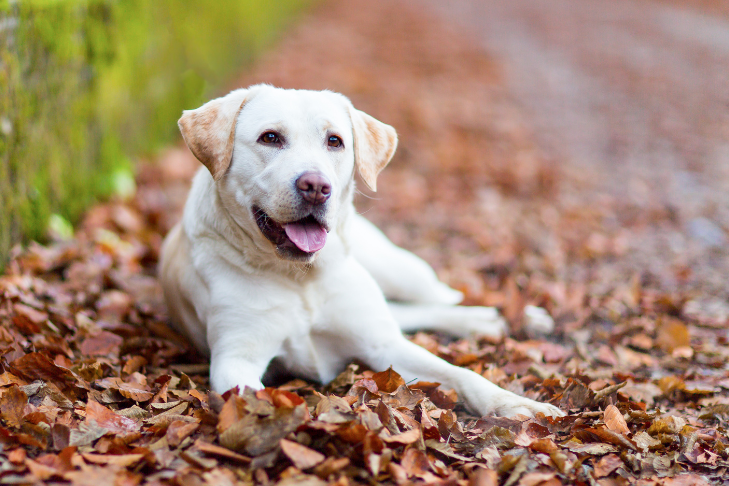7 Signs of Seasonal Allergies in Labrador Retrievers

Labrador Retrievers are playful, outdoorsy dogs, but like many breeds, they can be sensitive to seasonal changes. Pollen, grasses, molds, and stirred-up dust can all trigger discomfort. Spotting symptoms early helps you support your Lab so they can stay comfortable and active.
Common Signs of Seasonal Allergies in Labs
1. Excessive Scratching or Licking
Persistent scratching, licking, or chewing (especially on paws, belly, or ears) often points to irritated skin from seasonal allergens.
2. Red, Inflamed Skin (Hot Spots)
Allergic itch can snowball into red, moist patches. These areas can be painful and may worsen with continued scratching.
3. Ear Discomfort or Infections
Labs’ lovable floppy ears can trap moisture and debris. Watch for head shaking, ear scratching, redness, or odor.
4. Watery Eyes and Sneezing
Just like people, dogs may have watery, red eyes and occasional sneezing, often more noticeable after outdoor play.
5) Hair Loss or Thinning Coat
Constant licking and scratching can lead to patchy hair loss on the legs, tail, or sides, and a duller-looking coat.
6) Frequent Paw Chewing
Paws pick up allergens from grass and sidewalks. Ongoing paw chewing or stained fur between toes can be a clue.
7) Restlessness or Irritability
Itch-related discomfort can make even the chillest Lab a bit grumpy or restless, especially at night.
Practical Ways to Help Your Lab
- Rinse or wipe paws after walks: A quick rinse or pet-safe wipe helps remove pollen and dust.
- Routine bathing: During high-pollen months, bathe with a gentle, dog-safe shampoo to help remove allergens from the coat.
- Clean soft surfaces: Wash bedding and vacuum frequently to reduce indoor allergen buildup.
- Outdoor timing: If possible, plan playtime when pollen counts are lower (often after rain).
- Talk to your veterinarian: They can guide you on diagnostics and supportive options tailored to your dog.
Wellness note: Many pet parents also use daily supplements that support healthy skin and coat or overall immune health. Always consult your veterinarian before making changes to your dog’s routine.
Quick FAQ
Are seasonal allergies the same as food allergies?
Not typically. Seasonal allergies are often environmental (pollen, grass, mold). Food sensitivities may present similarly but aren’t tied to the time of year. Your vet can help distinguish the two.
When should I call the vet?
If your Lab’s itch is persistent, you notice ear odor/redness, or there are open sores/hot spots, consult your veterinarian for next steps.
Disclaimer: The information in this article is for educational purposes and is not a substitute for veterinary advice. Always consult your veterinarian about your pet’s specific needs.


